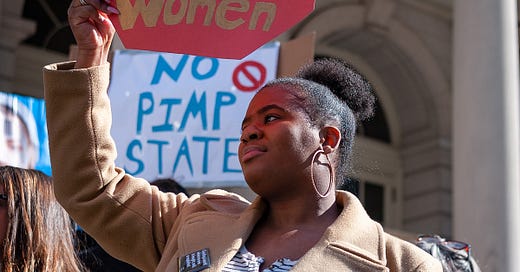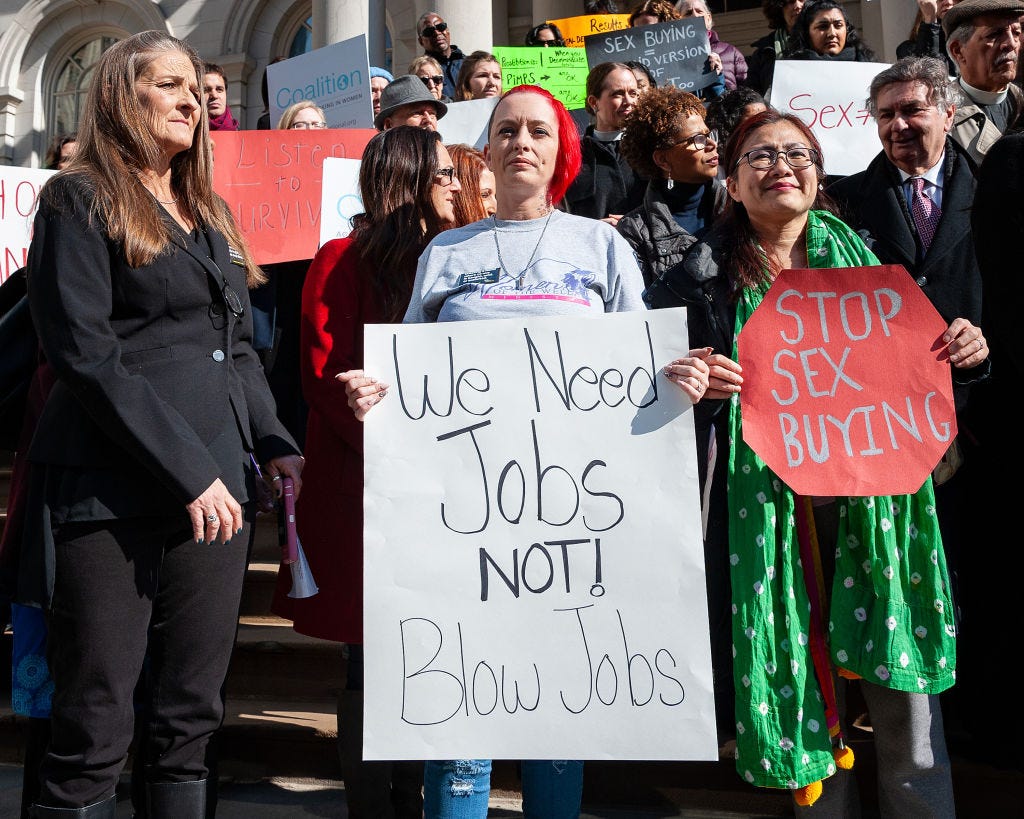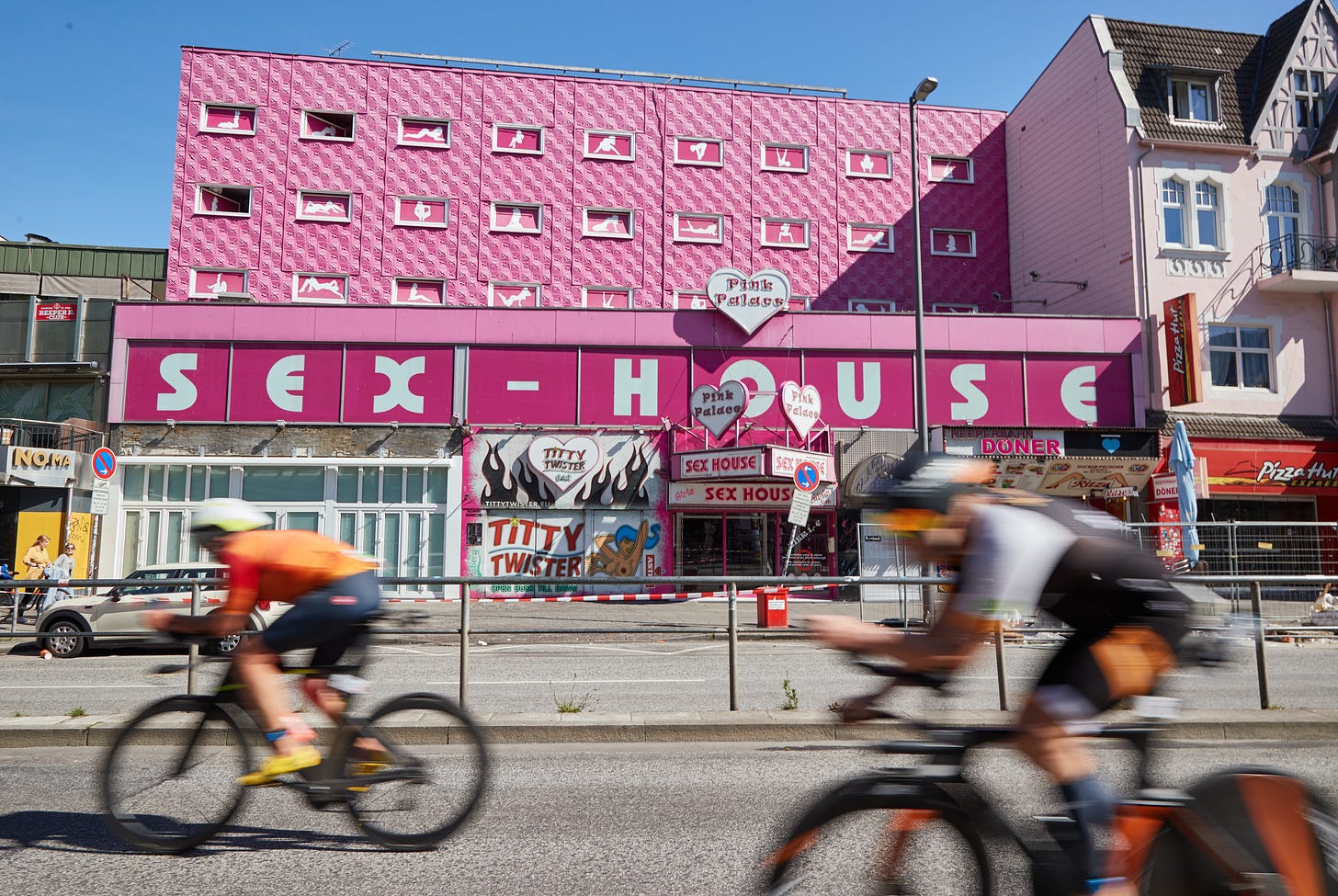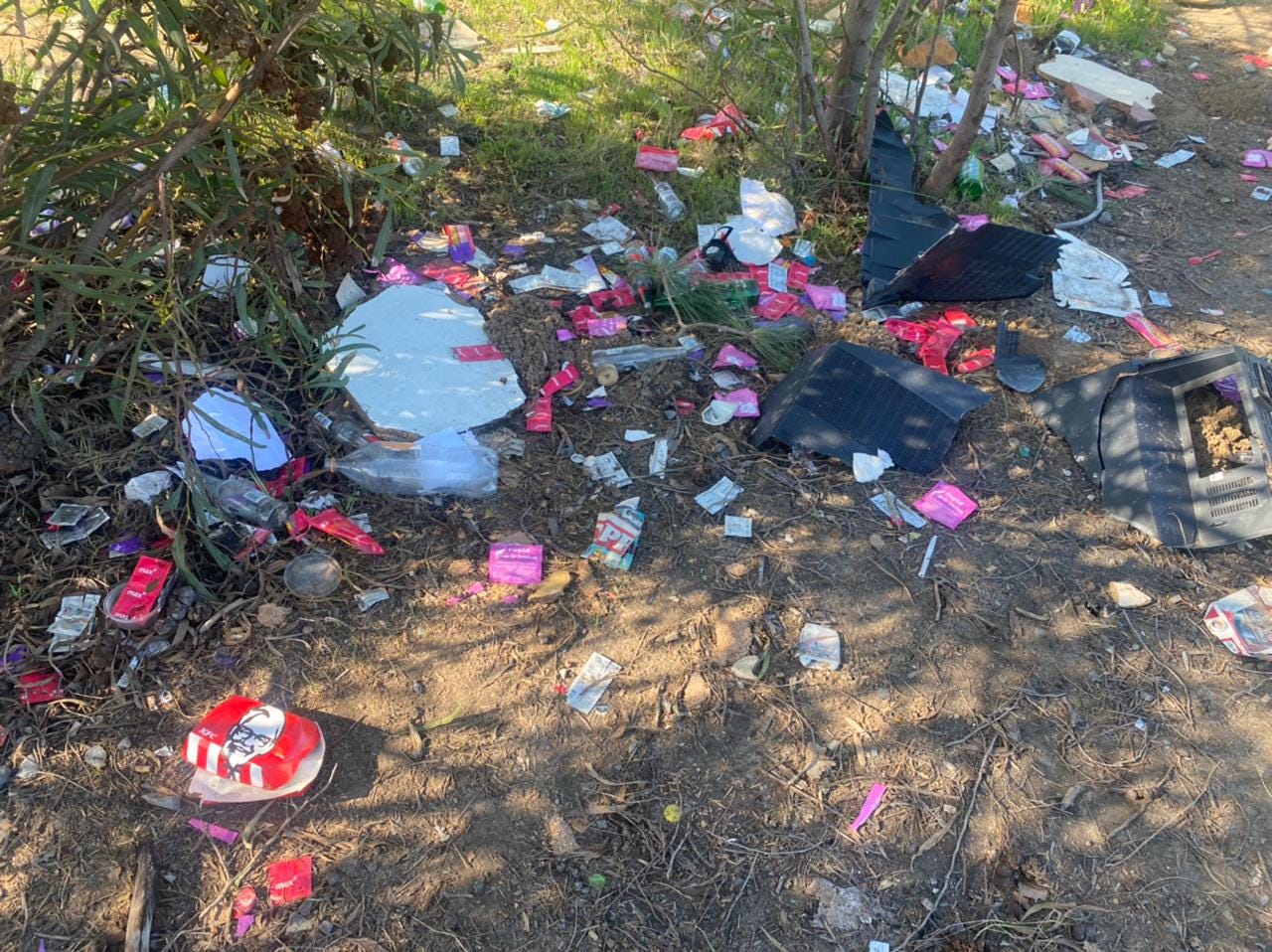If sex is 'work', then rape is merely theft
How can the inside of a woman's body be considered a suitable workplace? 'Sex work' is a ridiculous, offensive euphemism to describe a major human rights violation: prostitution
Melanie Thompson, prostitution survivor and sex trade abolitionist, NYC
In the decades I’ve spent campaigning against the global sex trade, I’ve lost count of the ways women in prostitution have described their punters to me, but here’s a taster: “sad, pathetic and grotesque”, “rapists that hand over cash”, “sadistic monsters”.
The three I quote here were not trafficked, locked in a brothel, chained to a radiator, or held at gunpoint in a transit van. They all worked in licensed massage parlours and saunas, and all were exploited by pimps masquerading as business men.
Paying for one-sided sexual pleasure, where men gain access to the inside of a woman’s body, is often equated with having a burger or a pedicure.
In the UK, prostitution is not illegal but certain related activities are, such as kerb crawling, and running a brothel. Selling sex is not illegal, unless it’s on street or in any public place. Additionally, paying for sex with a person who has been trafficked or otherwise coerced is technically illegal, but rarely enforced. Brothels, usually licensed as massage parlours or saunas, are seldom inspected by police. In other words, pimps and punters can act with impunity, but the women pay a heavy price.
The sex trade lobby continues to infiltrate the United Nations, legislatures around the world, and academia. UN agencies are calling on member states to decriminalise pimping, which Belgium did in 2022. It seems extraordinary to me that so-called human rights organisations promote the oppression of the most marginalised women and girls.
In Kosovo in 1999, I was told by my driver that brothels were being built close to the offices of charities and UN organisations because so many of the men stationed there were prolific users of prostitutes – despite the fact they were working on anti-trafficking strategies.
It was reported in 2018 that Oxfam's country director in Haiti, Roland van Hauwermeiren and other aid workers had been abusing prostituted females, some under age, at premises paid for with charitable funds.
Blanket decriminalisation does not afford better protection for the women, rather it leads to an increased market which inevitably expands beyond the legal, registered street zones and indoor markets. This regime does not mean rights in the “workplace”, because pimps and punters remain as brutal as ever. Pimps are considered to be businessmen, and the inevitable abuse suffered by the women is considered to be nothing more than an “occupational hazard”. Support for the women to leave prostitution becomes almost non-existent.
Window brothel, Amsterdam
I should know. I have seen the effects of decriminalisation with my own eyes.
My research on the sex trade has taken me around the world, including to New Zealand. Its sex trade, decriminalised in 2003, has been hailed by pro-prostitution campaigners as the gold standard model in regulating prostitution. In 2018, the New Zealand immigration service added "sex work" (as prostitution is increasingly described) to its list of "employment skills" for those wishing to migrate.
In the US, anti-prostitution campaigners are battling pro-prostitution bills across half a dozen states.
Almost every Australian state has recently decriminalised the sex trade, with Queensland recently becoming the country’s fourth jurisdiction to do so.
France introduced legislation known as the Nordic model, in 2016, joining a growing list of countries (Sweden, Norway, Canada, Northern Ireland, the Republic of Ireland and Israel) where it is illegal to buy sex. This shifts criminal responsibility to the buyer – who is prosecuted if caught, while the woman who sells sex is decriminalised.
This was always controversial, with sex workers’ rights campaigners arguing that a better solution would be to decriminalise the entire sex trade, including pimping, brothel owning and kerb crawling.
For the vast majority of women involved, prostitution is dangerous and degrading.
It is not just another job. For every “happy hooker” (if such a woman really exists) there are thousands whose everyday lives feature dozens of sexual encounters with strangers daily; routine beatings, rapes and extortion; HIV and syphilis, and cheap booze and drugs.
The removal of laws pertaining to pimping and brothel owning, and legitimisation of men paying for sex only further entrenches the view that prostitution is an inevitability. They say it’s the oldest ‘profession’ – I prefer to call it the oldest ‘oppression’.
Prostitution is a trade run for profit. Every red light zone from London to Cape Town is run by pimps, brothel owners, gangs and crime syndicates whose public face is just a slightly more respectable lobby of sex profiteers running businesses such as escort agencies and strip joints.
But nowhere have I encountered such normalisation of prostitution as I saw in Geneva – not even in Germany or the Netherlands (both of which legalised their sex trade decades ago). Until 2013, it was perfectly legal for men in Switzerland to pay for sex with 16-year-old girls. That year, after pressure from feminists and child protection advocates, the legal age was raised to 18.
In 2014, inmates of La Paquerette (a social therapy department for prisoners) were allowed to ‘visit’ prostituted women in a local detention centre near Geneva in order to “let off steam”. Many of the men were convicted sex offenders.
Brothel menu in Geneva
Time and again, prostitution has been described to me by the women who survive it as paid rape. Men who pay for sex are buying sexual subordination. ‘Consent’ that has to be bought is not consent. Every single one of the hundreds of survivors I have met has experienced serious violence, abuse and degradation during her time in prostitution. I have also interviewed dozens of punters, all of whom displayed attitudes of contempt towards women – and why wouldn’t they? To treat a woman as a commodity, it is necessary to first dehumanise her.
Prostitution site on street, just behind the legal brothels, Cape Town
When did so-called progressives – those supposedly on the Left - begin to support the very structures and practices that are both a cause and a consequence of women’s oppression? Today’s younger, middle-class, university-educated feminists are more likely to be offended by abolitionists campaigning to end the sex trade than by pimping and sex buying. Countless ‘progressive’ academics insist that “sex work” is ‘empowering’ and a ‘choice’.
Decriminalisation is another way of saying: open season on women's bodies. Look at the Netherlands, where women suffer the indignity of standing in windows waiting to be purchased. The Dutch legalised brothels in 2000. The government promised this would result in safety for the women, and an end to trafficking; everything would be above board, safe and clean. The opposite happened.
It is not necessary to accept that the sex trade is an inevitability. There is an alternative to wholesale normalisation of the buying and selling of women’s bodies. Evaluation shows that the Nordic model approach has reduced the number of women in prostitution; it also challenges the culture of acceptability of men paying for sex. There are calls from abolitionists, including many sex trade survivors, to introduce the law globally.
If you’re a punter, you’re upholding and expanding a market that trades on the misery of women and girls. Paying for sex is now so normalised that women from war-torn and impoverished countries are being shipped in by dangerous criminals in order to meet demand. Girls in care homes are being targeted by pimps and trained into prostitution.
I hope that one day there will be an uprising of all the women that have been abused in prostitution. In my fantasy, they appear, as if in some surreal nightmare, and one by one pluck these punters up and drop them on an island inhabited only by crocodiles and vipers. After all, that is the world that prostituted women are forced to inhabit.










I used to work in academia and the official position is that prostitution is an empowering and liberating experience for women. I once brought a former prostitute into my class and she talked about the horrific experiences she had had, including being beaten within an inch of her life on many occasions. The woke in the class called her an oppressor of women and me an anti-feminist. (I understand if you need to read this paragraph again to be sure you read it correctly)
If you ask the woke if those who do dangerous work for a living--mining, construction, etc.--freely consent to the risks of the job, they will vehemently argue that capitalism deprives the working class the ability to refuse to sell their labour in dangerous jobs and that therefore their consent to those risks is not legitimate. It is coerced.
Unless, of course, they are women selling their bodies for sex. Then the woke see no issue with them exposing themselves to brutal violence, disease, humiliation, and death, for money. If you point out that women who sell their bodies for sex do so from within the same, or worse, economic circumstances as miners and constructions workers, you get a restatement of "sex work is real work" shouted back at you, except a bit louder. If you keep going, you will be called misogynistic and, yes, a transphobe.
I actually agree that opposing prostitution is a form of 'transphobia'. Both prostitution and trans ideology share an underlying ideology: the body, especially those of women, is a commodity. If you're a so-called transwoman, you've achieved this through economic transactions of sorts. You view 'woman' as a collection of parts to be purchased, and as a social entity constructed solely by what she buys: lipstick, dresses, purses, and so on. What separates men and women, according to trans ideology, isn't biology, experience or genetics, but trinkets and imitation body parts that can be purchased.
So, to oppose prostitution because it turns women into commodities is to reject trans ideology as well. Both are forms of female commodification.
Funny, though. Socialism stands against capitalism because the latter, through markets, commodifies the human body. The woke have not only embraced the most dehumanising aspect of capitalism, but they have colonised the language that would allow us to critique it.
Wokism is capitalism on steroids (pun intended). No wonder the corporate world embraces it.
Historically, rape was an offence against a man, since the woman, who was the property of her father or husband, had been ‘damaged’. The misogyny associated with notions that sex can be work just show us that little has changed since the Middle Ages. Women are still objects for the gratification of men.